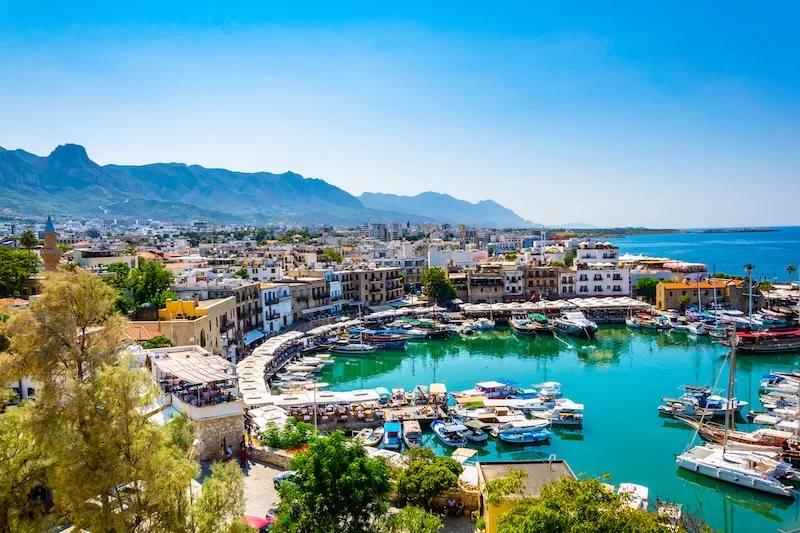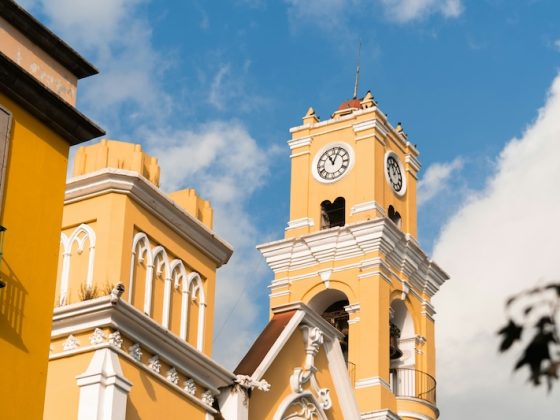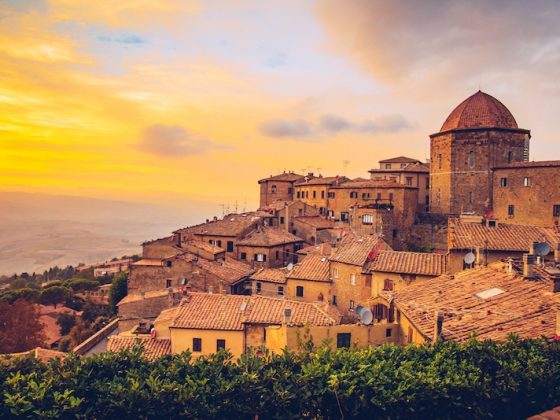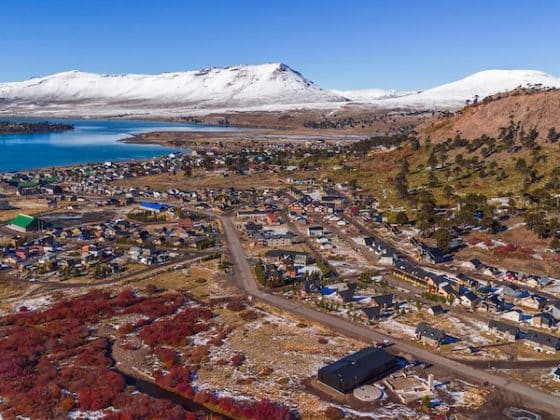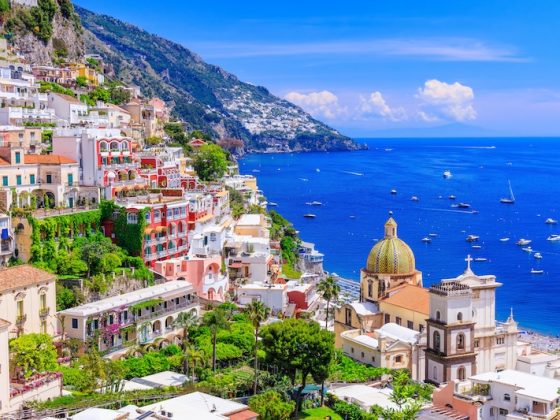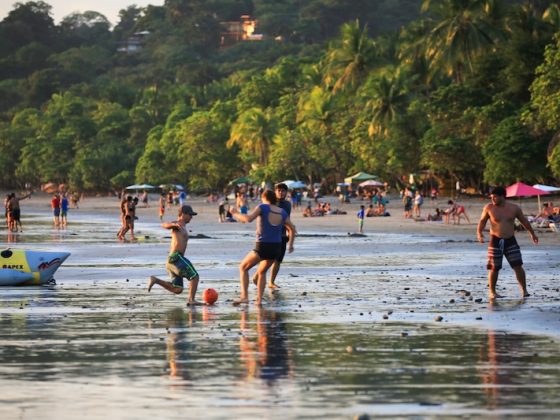The island of Cyprus in the Mediterranean is often considered one of the most picturesque and beautiful corners of the European continent. For years, it has been a tourist hotspot for travelers from all over the world. Similar to the Greek islands, it has mass appeal for all kinds of tourism—from retirees looking for a relaxing holiday to stag or hen parties drawn by the vibrant nightlife and cheap alcohol. The island offers all the classic ingredients of a tourist paradise: sunny weather, golden beaches, sprawling mountain ranges, and ancient buildings that trace the legacy of multiple empires. Geographically straddling East and West, Cyprus possesses a hybrid identity—not quite European, not quite Asian.
This cultural blend is what makes Cyprus special and beloved by many. But as is often the case in regions with layered identities, it has also led to division. What many visitors don’t realize is that a portion of the north has broken away from the Republic of Cyprus to form its own, largely unrecognized state: Northern Cyprus.
The Breakaway North
When most people think of Cyprus, they’re imagining the internationally recognized Republic of Cyprus. Northern Cyprus, by contrast, is far less visited and remains in a state of political ambiguity. While equally rich in culture and natural beauty, it sees significantly less tourism. Of the visitors it does receive, 78% are Turkish citizens traveling from Turkey. The region’s contentious history and legal limbo play a role in this disparity—as does the fact that you can only fly into Northern Cyprus from Turkey.
It may seem paradoxical that an island often seen as paradise could contain a tense, unresolved political conflict with the potential for escalation. Though Northern Cyprus operates as an independent state, Turkey is the only country that recognizes its existence.

Read more like this: Why Now Is a Great Time to Consider Cyprus
A Complicated Past
Cyprus lies at the crossroads of civilizations that have shaped humanity’s story. Over centuries, it has been ruled by Greeks, Romans, Byzantines, Ottomans, and even the British—each leaving behind cultural and architectural imprints.
Yet these overlapping influences have also created deep divisions between Greek and Turkish Cypriots. Tensions erupted in 1974 when Greek Cypriots staged a coup with the aim of unifying Cyprus with Greece. Turkey responded with a military intervention, citing a need to protect Turkish Cypriots in the north. The conflict killed around 4,000 people and ended with the partitioning of the island. The northern third fell under Turkish control.
In 1983, Northern Cyprus formally declared independence as the Turkish Republic of Northern Cyprus. The move was condemned by the United Nations, and no country apart from Turkey recognized it. Despite lacking international legitimacy, Northern Cyprus built its own governing structures and economy. It has since functioned in a de facto state of independence.
Authenticity in Isolation
Over time, Northern Cyprus developed its own distinct character. Large hotel chains and global brands never arrived, deterred by the region’s unrecognized status. Ironically, this has become one of its main draws for those seeking authenticity.
Without the crowds and commercialization found elsewhere on the island, Northern Cyprus offers travelers a more intimate experience. Most businesses are locally owned, and many historical sites remain blissfully uncrowded. In cities like Kyrenia, life feels much like any Mediterranean coastal town. But subtle markers reveal the political reality: no embassies, Turkish lira instead of euros, and a conspicuous absence of global franchise stores.
Despite its ambiguous status, life in Northern Cyprus is relatively stable. Income and living standards are only slightly below those in the south. The region’s political identity lingers in the background—an ever-present shadow rather than an active constraint.

How to Visit
Unlike other disputed territories, (see Somaliland, Transinistra, and Liberland) Northern Cyprus is relatively easy and safe to visit. All international flights arrive via Turkey, landing at Ercan International Airport. Entry requirements mirror those for Turkey, meaning citizens of the U.S., U.K., EU, Canada, and Australia don’t need a visa. A valid passport is enough. Northern Cyprus doesn’t stamp passports, which is convenient for travelers concerned about future scrutiny at Greek border controls.
The land border with the Republic of Cyprus is open and simple to cross, though its heavily militarized appearance can be off-putting. Nicosia, the capital, is physically divided between the two sides. Many tourists accidentally discover this when crossing from one part of the city to another, surprised to find military checkpoints and passport control in what seemed like a single urban area.
It’s worth being sensitive to political tensions when crossing. Wearing, say, a Turkish football jersey while entering the south is probably not advisable.

What to See and Do
Kyrenia is the jewel of Northern Cyprus. This ancient port city boasts Ottoman architecture, a Roman-era castle, and a shipwreck museum housing a 4th-century BC Greek merchant ship—the oldest recovered shipwreck in the world. Nearby villages like Bellapais offer similar charm with a quieter atmosphere.
On the east coast, Famagusta is another cultural and scenic gem. The nearby ruins of Salamis, once a thriving Roman city, remain exceptionally well preserved and are refreshingly free of tourist crowds. In many ways, these sites offer a glimpse of what ancient destinations might feel like without modern tourism’s trappings.
Cuisine is another highlight. Northern Cyprus’s food scene blends Turkish, Greek, and Middle Eastern influences: think grilled meats, fresh seafood, meze spreads, and local halloumi. Traditional crafts like lacework, pottery, and jewelry-making also endure here. Markets throughout the region sell handmade items, often crafted before your eyes.

Read more like this: Top 4 Expat Destinations with the Best Weather
Looking Ahead
Northern Cyprus remains peaceful, but its long-term future is uncertain. A resolution seems unlikely, given the mutual distrust between Greece and Turkey. Both nations continue to invest heavily in defense, preparing for a conflict that neither side wants but cannot quite dismiss.
For now, the conflict is frozen. Northern Cyprus continues to function in political limbo, acknowledged by few but visited by many who are curious enough to look beyond the headlines. Despite its uncertain status, it remains one of Europe’s last under-the-radar gems—a land rich in beauty, history, and authenticity.
In a world where every destination is increasingly filtered and familiar, Northern Cyprus offers something different: the thrill of discovery and the feeling of having stumbled upon a place the world forgot.
—————–
Ethan Rooney is an Irish journalist covering global communities, culture, and niche movements. You can find more of his work here.
About the Author
Ethan Rooney is an Irish journalist covering global communities, culture, and niche movements.
Contact Author
"*" indicates required fields
Stay Ahead on Every Adventure!
Stay updated with the World News on Escape Artist. Get all the travel news, international destinations, expat living, moving abroad, Lifestyle Tips, and digital nomad opportunities. Your next journey starts here—don’t miss a moment! Subscribe Now!
